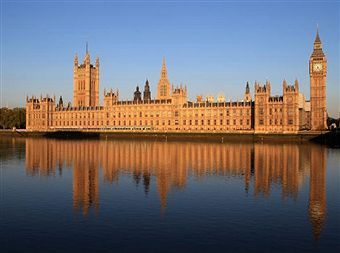 Enough is enough. The British Bill of Rights is set to return: a consequence of the
government’s running battle with parliament over the European Convention on Human Rights. Recent days have been filled with clues and suggestions of imminent reform: Dominic Grieve, a former
advocate of the ECHR, went so far as to assert that Britain may leave the convention. Cameron
let slip the news that a Bill Of Rights commission is to be convened at PMQs; at the time he was answering a
question about the Supreme Court’s controversial sex offenders’ register decision.
Enough is enough. The British Bill of Rights is set to return: a consequence of the
government’s running battle with parliament over the European Convention on Human Rights. Recent days have been filled with clues and suggestions of imminent reform: Dominic Grieve, a former
advocate of the ECHR, went so far as to assert that Britain may leave the convention. Cameron
let slip the news that a Bill Of Rights commission is to be convened at PMQs; at the time he was answering a
question about the Supreme Court’s controversial sex offenders’ register decision.
There are no details as to what the commission will consider, but Theresa May aired the guiding philosophy during her statement on the sex offenders’ register. ‘The rights of the public’ must be represented above ‘the rights of convicted criminals.’ She added, ‘It is for parliament, not the courts, to decide the laws of this country.’ And then, with defiance, she concluded: ‘Parliament will have the final say.’
That is unequivocal and she said more that is of equal constitutional importance. May wants to differentiate from the Scottish executive’s approach to the register, which she described with palpable contempt. In England and Wales, paedophiles will only be eligible for removal from the register fifteen years after their release from custody; and the police, not the courts, will then decide the claim.
These are emphatically Conservative policies on law and order, freshened with bursts from the pungent Eurosceptic aerosol. As James argues, they pose a distinct test for the coalition. They are also constitutional questions. Certainly, parliament has been diminished in recent years – by European Institutions and the British executive and its whips. In a recent article for the Guardian, Dr Sarah Wollaston MP explained how executive power neuters parliamentary scrutiny and the independence of select committees. Chamber and statute book are not immune either. The Terrorism Act (an law that limits that most crucial of rights: Habeas Corpus) is the most infamous example of the House of Commons’ weakness, but there are plenty of others: the swift passage of a banking bailout was necessary, protecting Sir Fred Goodwin’s pension was not.
Executive excess is not restricted to the glamour of legislative emergency: it’s constant. For instance, will the government explain how checks and balances are being maintained, when absolute control of a document such as the sex offenders’ register is awarded to an executive agency like the police? The police advise; they do not decide. That is either for parliament or the courts. Together with the more sensational sovereignty questions, excessive executive power must be addressed too if parliament is to re-assert itself.






Comments